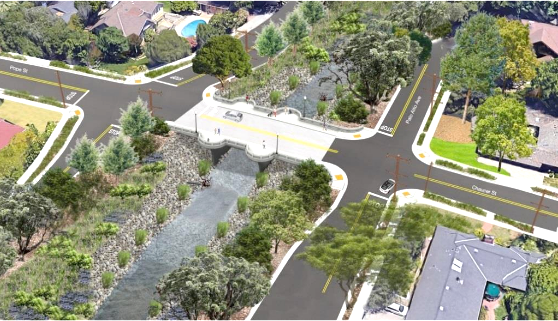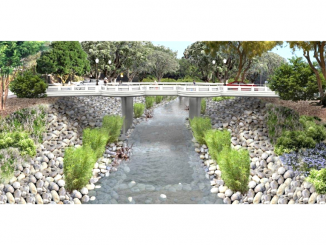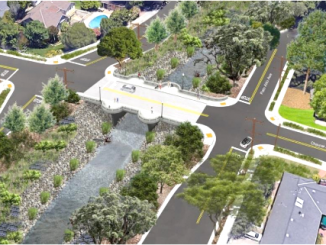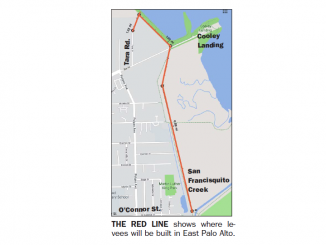
BY EMILY MIBACH
Daily Post Staff Writer
A Menlo Park man is suing the government agency tasked with reducing the possibility of flooding along the San Francisquito Creek, saying that the agency’s current project to replace the Pope-Chaucer Street bridge has not been transparent and the environmental review of the project has been done piecemeal.
Peter Joshua, the Pope Street resident who filed the lawsuit in San Mateo County Superior Court on Oct. 24, said there was a lack of transparency with the project, and that JPA officials presented the project at meetings as inevitable no matter what neighbors said.
But Gary Kremen, the board president of the San Francisquito Creek Joint Powers Authority (JPA), said the lawsuit is “frivolous, last minute and unneighborly.”
Joshua said he’s asked the agency for plans for the replaced Pope Chaucer Bridge, but has not gotten adequate answers.
Joshua’s lawsuit also alleges that there was not enough study into alternatives in the environmental report. The final report includes four alternatives, but the draft report had 17 alternatives, which were narrowed down to the final four by the JPA board.
Kremen said there have been 30 meetings about the project over the past few years, and the district’s process has been very open.
The bridge, is blamed for the 1998 flood that caused more than $28 million in damage. The project will also widen the creek channel at a few “bottleneck” locations between Highway 101 and Euclid Avenue. The project is supposed to start construction this year.
Ironically, a group of 27 residents and one business owner sued the cities of Menlo Park and Palo Alto in 1999 to force them to build new bridges at Pope-Chaucer and Middlefield Road. The plaintiffs argued that the governments knew before the 1998 flood that the waterways beneath the bridges were too small and, when clogged with debris, would become dams that would back up water over the creek banks, flooding homes and businesses. But in 2004, the cities decided that instead of rebuilding the bridges, they’d pay the plaintiffs $3.5 million to end the lawsuit.
In this lawsuit, no court hearing has yet been scheduled. The JPA board will discuss the lawsuit behind closed doors on Thursday.



